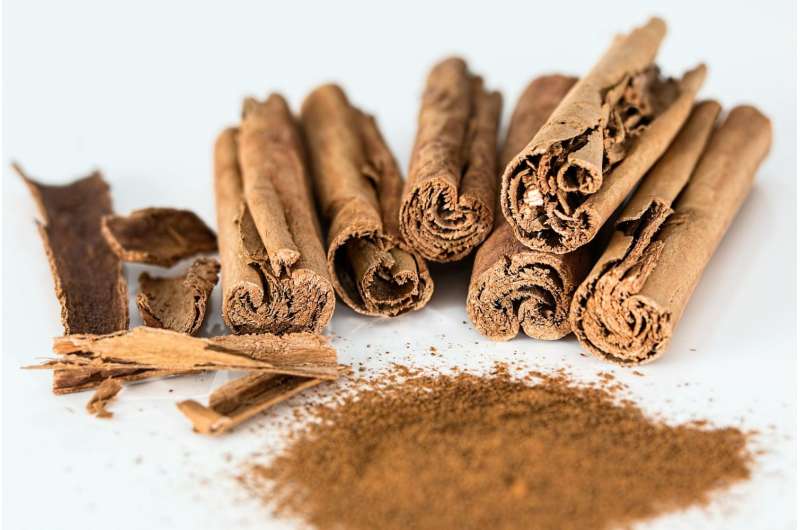Credit: CC0 Public Domain
Cinnamon might be the oldest known spice in the world. In ancient Egypt, it was once valued more highly than gold. Cinnamon is used in nearly every holiday treat during the fall and winter, but there are plenty of benefits to using cinnamon year round.
Science has confirmed the many health benefits tied to cinnamon:
Antioxidants
Cinnamon is high in antioxidants—including polyphenols—which protect the body's tissues against oxidative stress and associated pathologies such as cancers, coronary heart disease and inflammation.
Protection against heart disease
Cinnamon has been linked to reduced blood pressure, triglycerides, cholesterol levels and blood sugar in those with metabolic diseases.
Improved insulin sensitivity
Studies suggest cinnamon might be able to reduce insulin resistance, increasing sensitivity to hormone insulin that can improve blood sugar control.
Protection from neurodegenerative diseases
Some compounds found in cinnamon have an effect on tau—a protein in the brain associated with Alzheimer's disease. In a study involving mice in 2014, cinnamon was a protectant for neurons and helped improve motor function for mice with Parkinson's disease.
Anti-inflammatory
Cinnamon is a natural anti-inflammatory that blocks the release of arachidonic acid, a fatty acid that causes inflammation. This arachidonic acid can also cause blood clotting.
While all cinnamon might look the same, there are two different kinds—Cassia and Ceylon. Both posses the helpful qualities described above; however, Cassia cinnamon contains the toxin coumarin, a compound found in some plant species that can be harmful if consumed in high quantities.
Ceylon—also known as "true cinnamon"—comes from Sri Lanka and southern India. Cassia, on the other hand, originated in southern China and is now widely grown across southern and eastern Asia. It's a darker brown-red color. Cassia is the most common cinnamon found in supermarkets and it's generally cheaper than Ceylon cinnamon.
2022 The Atlanta Journal-Constitution.
Distributed by Tribune Content Agency, LLC.






















